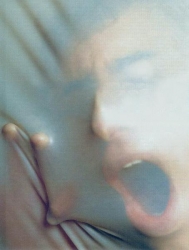Pain Patients Should Not be Punished for Opioid Medication Abuse or Addiction
According to a special report from Pain-Topics.org, practitioners prescribing opioids for pain should be prepared to deal with patients’ problems in using the medicines. Patients should not be discharged from treatment if opioid abuse or addiction occurs.

Chicago, IL, January 20, 2008 --(PR.com)-- “Any practitioner prescribing opioids for chronic use should be accountable for having a strategy in place if medication abuse or addiction occurs,” says Peggy Compton, RN, PhD. “Providing daily opioid pain relievers without suitable addiction expertise or support in place puts both the pain-management practitioner and patient at risk for poor outcomes.”
Unfortunately, the common practice of discharging patients from opioid therapy when there are concerns about substance abuse or addiction can do significant harm; not just to patients, but also affecting their families, the healthcare system, and society at large. Such practice should be avoided, Compton urges.
Compton is an Associate Professor of Nursing at the UCLA School of Nursing, Los Angeles. Her report, exclusively for Pain Treatment Topics and published at the Pain-Topics.org website – "Should Opioid Abusers Be Discharged From
Opioid-Analgesic Therapy?" – can be accessed at… http://pain-topics.org/clinical_concepts/comments.php#Compton
In her report, Compton stresses that instead of denying patients their pain-relieving opioids, working partnerships between addiction and pain specialists should be developed, with the pain practitioner continuing treatment for pain while also playing a role in addiction treatment. This does not require the pain-management practitioner to become an addiction specialist; however, pain practitioners should be involved in, rather than draw away from, addiction treatment for their patients with chronic pain who have need for such services.
Important suggestions in the report include:
# It is very difficult to identify true addiction in patients with chronic pain.
# Patients taking opioids every day should be monitored for signs of drug abuse or addiction.
# If opioid-use problems arise, and are accurately assessed, substance-abuse treatment strategies should become part of the pain treatment plan.
# Pain practitioners should stay involved, since there is a lack of special services for treating patients with both pain and addiction.
# Pain practitioners can support a patient’s addiction recovery by encouraging attendance at 12-step programs, limiting the patient’s access to opioid medicines, and monitoring the patient’s mental health status.
Such participation by pain practitioners not only enhances therapy for chronic pain but provides them a unique opportunity to help stem the significant public health problem of opioid abuse and addiction. In this report, Compton outlines specific steps for any healthcare provider to follow.
###
Pain Treatment Topics and the associated Pain-Topics.org website provide open and free access to noncommercial, evidence-based clinical news, information, research, and education on the causes and effective treatment of the many types of pain conditions. It is independently produced and currently supported by an unrestricted educational grant from Covidien/Mallinckrodt Inc., St. Louis, MO, a leading manufacturer of generic opioid analgesic products. For other Pain Treatment Topics press releases, go to: http://pain-topics.org/newsroom.php.
Unfortunately, the common practice of discharging patients from opioid therapy when there are concerns about substance abuse or addiction can do significant harm; not just to patients, but also affecting their families, the healthcare system, and society at large. Such practice should be avoided, Compton urges.
Compton is an Associate Professor of Nursing at the UCLA School of Nursing, Los Angeles. Her report, exclusively for Pain Treatment Topics and published at the Pain-Topics.org website – "Should Opioid Abusers Be Discharged From
Opioid-Analgesic Therapy?" – can be accessed at… http://pain-topics.org/clinical_concepts/comments.php#Compton
In her report, Compton stresses that instead of denying patients their pain-relieving opioids, working partnerships between addiction and pain specialists should be developed, with the pain practitioner continuing treatment for pain while also playing a role in addiction treatment. This does not require the pain-management practitioner to become an addiction specialist; however, pain practitioners should be involved in, rather than draw away from, addiction treatment for their patients with chronic pain who have need for such services.
Important suggestions in the report include:
# It is very difficult to identify true addiction in patients with chronic pain.
# Patients taking opioids every day should be monitored for signs of drug abuse or addiction.
# If opioid-use problems arise, and are accurately assessed, substance-abuse treatment strategies should become part of the pain treatment plan.
# Pain practitioners should stay involved, since there is a lack of special services for treating patients with both pain and addiction.
# Pain practitioners can support a patient’s addiction recovery by encouraging attendance at 12-step programs, limiting the patient’s access to opioid medicines, and monitoring the patient’s mental health status.
Such participation by pain practitioners not only enhances therapy for chronic pain but provides them a unique opportunity to help stem the significant public health problem of opioid abuse and addiction. In this report, Compton outlines specific steps for any healthcare provider to follow.
###
Pain Treatment Topics and the associated Pain-Topics.org website provide open and free access to noncommercial, evidence-based clinical news, information, research, and education on the causes and effective treatment of the many types of pain conditions. It is independently produced and currently supported by an unrestricted educational grant from Covidien/Mallinckrodt Inc., St. Louis, MO, a leading manufacturer of generic opioid analgesic products. For other Pain Treatment Topics press releases, go to: http://pain-topics.org/newsroom.php.
Contact
Pain Treatment Topics
Stewart B. Leavitt, MA, PhD
847-724-3091
Pain-Topics.org
Stewart B. Leavitt, MA, PhD
847-724-3091
Pain-Topics.org
Categories
